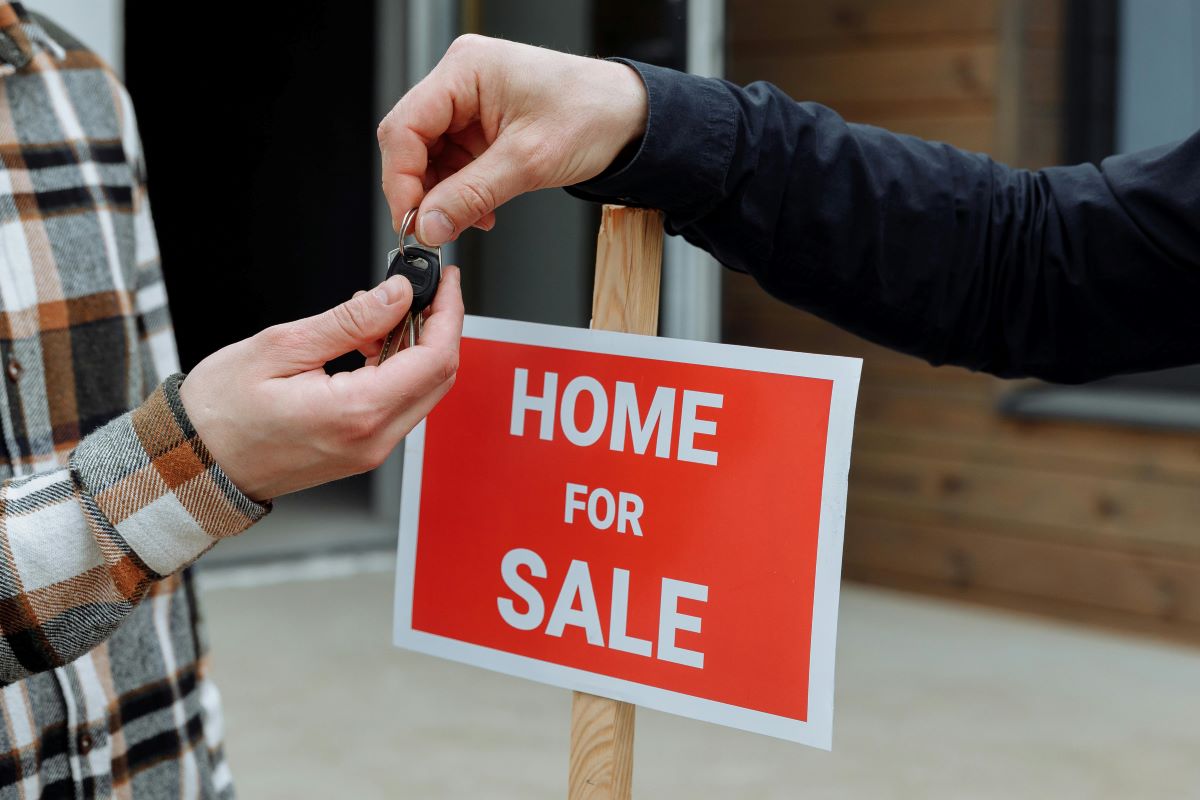The Best Fluffy Pancakes recipe you will fall in love with. Full of tips and tricks to help you make the best pancakes.

One of the most common questions homeowners ask when preparing to sell is, how long does it take to sell a house? While the process varies widely, the national average time to sell a house typically ranges between 55 and 70 days from listing to closing.
While this is a general range, your own selling timeline may be shorter or longer depending on your pricing strategy, the home’s location, how quickly you respond to offers, and the buyer’s financing situation. So whether you’re considering selling your house in Austin or are about to list your home for sale in Denver, here’s what you need to know about how long it takes to sell a house. 
How long do most houses take to sell?
While the time it takes to sell a house can vary based on a number of factors, the stages of the home selling process are typically the same wherever you live. The below guide shows a general timeline:
- Home Preparation (1–3 weeks): This phase includes cleaning, decluttering, staging, and completing any minor repairs or updates. Professional photos are taken, and your home is listed on the housing market.
- Active Listing Period (10–30 days): Once listed, your home will receive showings, and potential buyers may submit offers. In a hot market, this could happen in just a few days. However, in slower markets, it might take a few weeks.
- Offer Negotiation & Acceptance (1–5 days): After receiving one or more offers, you’ll review terms, negotiate price or contingencies, and accept the best deal. Quick responses from both sides can speed this up.
- Inspection & Appraisal (7–14 days): Once under contract, the buyer arranges a home inspection and the lender orders an appraisal. If issues are found, this stage may involve renegotiations or repair agreements.
- Final Loan Approval & Escrow (2–4 weeks): The buyer’s lender completes underwriting, verifies documents, and prepares for closing. The title company ensures all legal and financial requirements are satisfied.
- Closing Day (1 day): Both parties sign the necessary paperwork and transfer ownership. The seller receives proceeds, and the buyer gets the keys to their new home.
Total Average Timeline: 55–70 days from listing to closing. This can vary based on market conditions, buyer financing, property condition, and how quickly each party responds during the process.
>> Read: How to Sell Your House Fast
What factors affect the time it takes to sell a house?
A few primary factors can speed up or slow down your home sale. Understanding these can help you better position your property and manage expectations.
Location: A home located in a highly desirable area—such as one with great schools, new infrastructure, or proximity to city centers—tends to sell faster. Homes in more rural or isolated areas typically take longer due to limited buyer interest.
Price: Overpriced homes often linger on the market, while competitively priced listings draw more attention and offers. Pricing your home slightly below market value can even result in multiple bids and a quicker sale.
Condition and staging: Homes that are clean, updated, and move-in ready tend to appeal to a broader range of buyers. Investing a bit in curb appeal and minor improvements can shave weeks off your market time.
Comparable sales: If similar properties in your area have sold within a few weeks, that’s a good sign you may see similar results — assuming your property is priced and presented well.
How quickly can you sell a house?
In competitive housing markets, homes can receive offers within the first 24 to 72 hours of being listed. The fastest sales typically happen when a home is priced attractively, shows well, and is marketed effectively to the right buyers.
However, even when a home goes under contract quickly, the sale isn’t complete until closing. The average time to close on a house is about 30 to 45 days. This period includes buyer inspections, appraisals, loan approval, title work, and final negotiations. Delays can happen at any stage, so sellers should be prepared for unexpected issues, regardless of contract stage.
What size house sells the fastest?
Homes that sell the fastest are typically between 1,500 and 2,000 square feet. These mid-sized homes are appealing to a wide range of buyers, including first-time homeowners, young families, and older adults looking to downsize without sacrificing comfort.
Larger homes with luxury features or high price tags, tend to take longer to sell due to a smaller pool of qualified buyers. At the same time, very small or older homes may stay on the market longer if they need repairs or updates. Generally, homes that offer flexible space, modern features, and a reasonable price point move more quickly than those that cater to niche markets.
What are the hardest months to sell a house?
The time of year has a major impact on how long it takes to sell your home. In general, spring and early summer are considered the best times to sell, with more buyers actively searching and competing for homes.
Conversely, the hardest months to sell a house are usually November through February. During the winter holidays and colder months:
- There are fewer active buyers
- Moving is less appealing due to weather and school schedules
- Homes may not show as well due to shorter days and gloomy weather
If you need to sell during these slower months, consider adjusting your pricing or offering incentives to attract interest.
What takes the longest when selling a house?
There are several points in the selling process where delays commonly occur. Overpricing a home is often the first and most significant factor that extends time on the market. Buyers are increasingly savvy and have access to listing data and market comparables.
Condition also matters. A home that requires major repairs or cosmetic updates is more likely to be passed over in favor of move-in-ready properties. Many buyers want a home they can settle into immediately, especially when mortgage interest rates are higher and budgets are tighter.
Even after an offer is accepted, financing delays, low appraisals, inspection negotiations, or issues with the title can stall the process. These back-end challenges are among the most common reasons home closings are delayed, and they can stretch the timeline beyond your initial expectations.
How long should you live in a house before selling?
If you’re thinking ahead to resale value and tax implications, a good rule of thumb is to live in your home for five years before selling. From a financial perspective, selling too soon may result in a loss. Particularly if you’ve only made small payments toward the principal on your mortgage. Waiting five years before putting your house back on the market allows time to:
- Build up equity and avoid selling at a loss.
- Recoup upfront closing and moving costs.
- Qualify for capital gains tax exemptions (you must have lived in the home for two of the last five years to exclude up to $250,000 of profit, or $500,000 for couples, from your taxes).
Selling too soon can be costly — especially if home prices haven’t appreciated enough to offset the transactional fees. Living in your home for a few years also gives you time to make improvements that can boost resale value
Final thoughts on how long It takes to sell a home
Understanding the timeline of a home sale helps you plan better and avoid unnecessary stress. The most successful home sales come from a combination of good timing, smart pricing, thoughtful preparation, and market-savvy guidance. If you’re preparing to list your property, take advantage of online resources to understand your market, or find a local Redfin Real Estate agent who can create a tailored strategy for your home.





